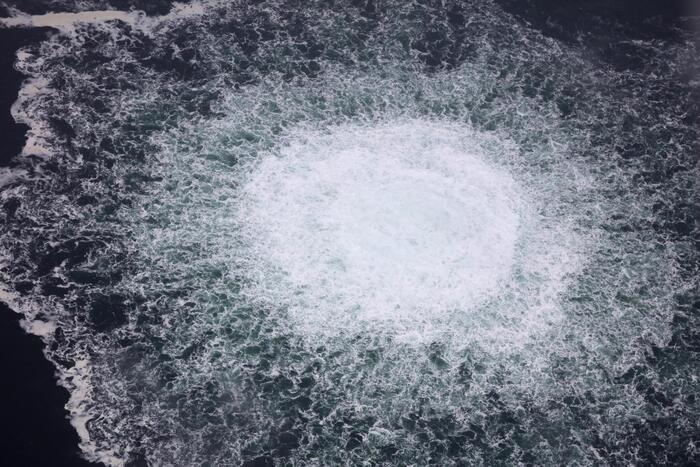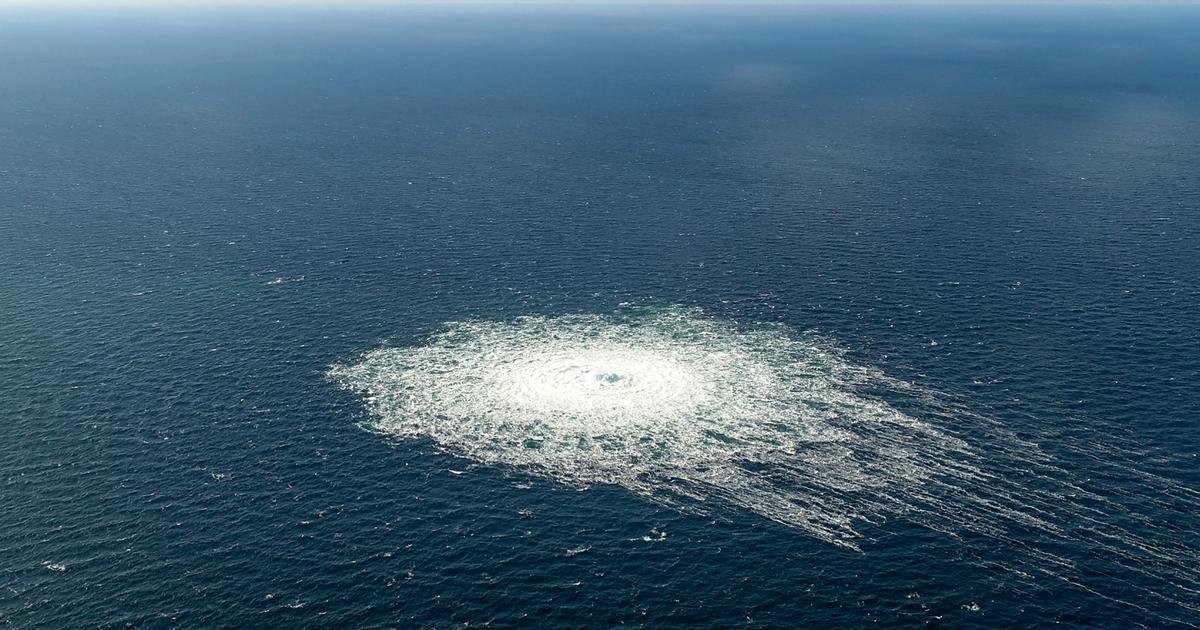Icon: enlarge
Pipeline construction in the Baltic Sea: unstoppable?
Photo: Bernd Wüstneck / DPA
More than 30 years after the fall of the Wall, meetings of German and Polish top politicians are now a routine that borders on boredom.
For example, Vice Prime Minister Jarosław Gowin visited Bundestag President Wolfgang Schäuble in Berlin last Thursday.
Together they were happy about the growth in German-Polish trade (eight percent in November of the crisis year 2020 compared to 2019), and they promised cooperation on everything: climate protection, digitization, vaccine procurement, reconstruction.
It emphasized "the key role of close German-Polish relations on the basis of the existing tasks and common values".
In truth, however, there is a dispute in the air - and it has been for a long time: days after the meeting, construction work on the Nord Stream 2 Baltic Sea pipeline should be resumed.
The pipe is the second of its kind, it is almost finished and should shortly be able to transport 55 billion cubic meters of gas from Russia directly to Mecklenburg-Western Pomerania.
For Berlin the project is a »purely economic one«, for the Poles - as Gowin said it - a violation of the idea of »European solidarity«.
Nord Stream 2 is the elephant in the area of German-Polish relations.
All Polish parties are strictly against the pipeline
It is not that the rejection is a new nationalist quirk of the right-wing conservative PiS government in Warsaw.
All Polish parties are strictly against the pipeline.
And Estonians, Latvians and Lithuanians are just as unanimous on the issue.
Czechs and Slovaks, Bulgarians and Romanians are at least very critical because they believe: Nord Stream 2 makes Europe dependent on Russian gas, good business with Russia sends the wrong signal to President Vladimir Putin, who has stolen Crimea and has his critics poisoned.
But for the Eastern European members it is about more than energy and geopolitics.
The fact that gas will run out in Tallinn or Warsaw is not a concern.
Today, care rests on many pillars.
Because you can lose transit fees, Ukraine and pressure, which Poland most likely sees as a political ward, will come under pressure.
"The commission violates the principles of non-party status once again and defends German interests."
Jacek Saryusz-Wolski, Polish Member of the European Parliament
The direct pipeline between the largest EU country, the Federal Republic, and a Russia still indulging in hegemonic nostalgia, awakens bad historical memories in the east of the continent.
Doubts about the EU have crept in
Are our experiences actually respected and our concerns heard?
Quite a few Poles, Czechs and Latvians ask themselves that.
Or does the Federal Republic simply wipe them off the table when it comes to business?
In all Eastern European EU countries, approval of the Brussels Union is still very high, but at the same time doubts have crept in: do they really take us seriously as full partners?
For the conservative MEP Jacek Saryusz-Wolski, the question has already been answered.
The other day he pointed out, for example, that only seven percent of top posts in Brussels are occupied by Eastern Europeans, although the countries make up 20 percent of the EU population.
He sharply criticizes the fact that the commission is not taking action against the pipeline project vigorously: "The commission is once again violating the principles of impartiality and defending German interests."
Signing of the Hitler-Stalin Pact in Moscow in 1939: the debate was shrill
Photo: dpa / picture-alliance / dpa
The German intransigence on the pipeline on the one hand and Berlin's indulgence towards Russia on the other cannot be understood from an Eastern European perspective.
Tenor: Isn't it clear to the Germans who they are dealing with?
As early as 2006, Poland's then Defense Minister Radek Sikorski set the shrill tone of the debate and compared the agreement on the first strand of the Baltic Sea pipeline with the Hitler-Stalin Pact.
On this basis, Nazi Germany and the Soviet Union divided Poland in World War II and committed mass crimes there.
German-Russian friendship also plays a role today in the dispute over the Polish judicial reform.
How, for example, could Germany refer to the rule of law towards Poland - and at the same time do business with Gazprom, asks PiS politician Patryk Jaki.
The company clearly belongs to Putin's system of rule.
Germany recently confirmed a picture that Eastern European rights carefully cultivate.
According to this, the Federal Republic of Germany is a double-faced hegemon, mouthing European ideals, but in reality ruthlessly asserting its interests.
Konrad Popławski, an expert at the Warsaw think tank “Center for Eastern Studies”, is also uncanny about Germany: “Germany is the clear leader.” Since Brexit, there has hardly been a serious opponent in Europe.
Berlin also annoyed the USA with Nord Stream.
A fresh start in transatlantic relations after the Trump disaster is urgently needed.
Europe and the USA would have to stand together closely in order to be able to oppose something not only to Russia but also to China.
"But Berlin is taking steps in exactly the opposite direction," says Popławski.
Icon: The mirror





